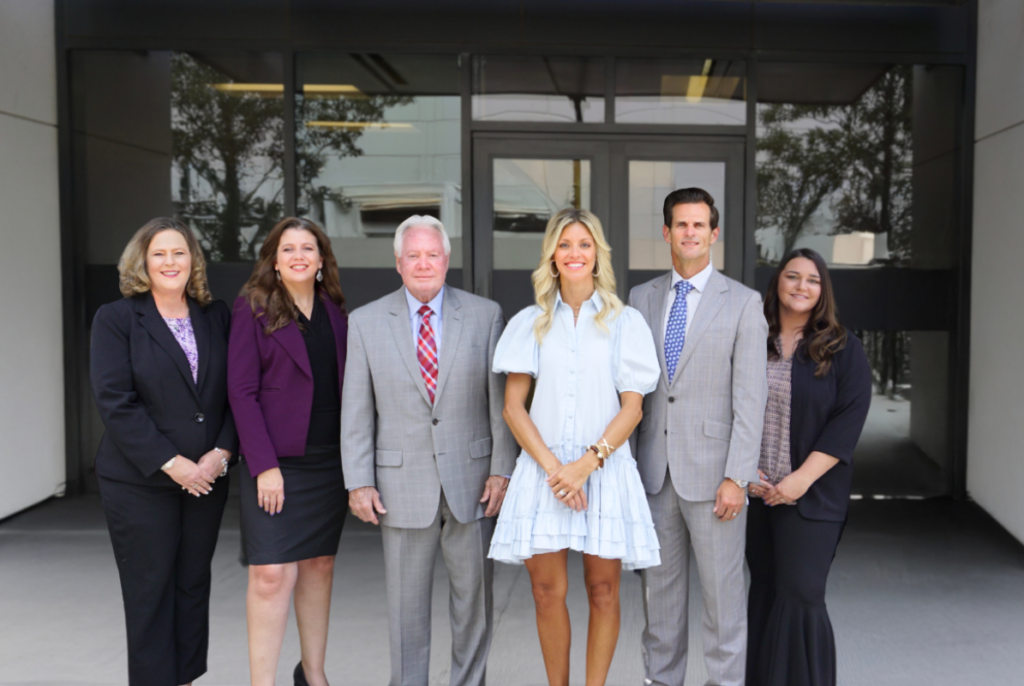Same-sex divorces come with their own set of challenges, often involving issues that traditional divorces might not face. Questions about parental rights, property division, and legal recognition of the marriage can make these cases complex. Understanding these factors is important for anyone considering a same-sex divorce in Texas.
In the video, Atty. Tina Campbell and Atty. McKenzie Coe of Turner-Monahan PLLC discuss the growing complexities of LGBTQ+ divorces in Texas, sharing real cases involving same-sex couples, unique challenges around parental rights, and how these situations differ from traditional divorces as more families face these issues across the state. All case evaluations are based on Texas Family Law. This content is for educational purposes only.
Unique Challenges in LGBTQ+ Divorce
At Turner Monahan, we have experience handling same-sex divorce cases, and some situations can be especially complex. One particular case involved two women who were married and had children during the marriage. What made this case complicated was how the children were conceived.
The children were born naturally with the involvement of an outside person. This was not a typical sperm donor arrangement, nor was it done through any doctors or gestational agreements. The lack of formal agreements added several layers of complications during the divorce process.
Situations like this remind us that every case is different, especially in same-sex marriages where traditional legal frameworks do not always fit perfectly.
Are LGBTQ+ Divorce Cases Increasing?
There is definitely an increase in same-sex divorce cases compared to previous years. While this is still Texas, and things are different here compared to places like Los Angeles or New York, we are seeing more of these cases come in.
It is not necessarily happening more at this law firm alone, but across the area overall. In the last five years, the increase has been noticeable. Even within the last two years, we have handled four same-sex divorce cases, and one is still pending.
While LGBTQ+ divorces are still not a large percentage of our caseload, mainly due to population size, they are becoming more common than they used to be.
Parental Rights and Presumption of Parenthood
One of the most common challenges in same-sex divorces is the legal recognition of both parents. In Texas, the presumption of parenthood typically applies to the biological or legally adoptive parent. This can create problems when one spouse did not legally adopt the child but played an equal role in raising them.
Without adoption or a formal agreement, the non-biological parent may face difficulties in securing custody or visitation rights. This leaves many parents in same-sex marriages unsure about where they stand legally, especially when the relationship ends.
Property Division and Community Property Concerns
Property division in same-sex divorces can also become complicated, especially if the couple was together before same-sex marriage was legally recognized. In Texas, property is divided based on community property laws, meaning anything acquired during the marriage is typically split equally.
However, if the couple lived together for years before legally marrying, assets accumulated during that time may not be counted as community property. This creates unique challenges for same-sex couples who shared financial responsibilities long before their marriage was officially recognized.
What Does the Texas Family Code Say About LGBTQ+ Divorce?
The Texas Family Code governs all divorce cases, including those involving same-sex couples. While the law does not separate same-sex divorces from others, certain sections directly impact these cases:
Section 160.204 – Presumption of Paternity:
This section outlines the presumption of paternity for a husband in a marriage. In same-sex female marriages, this presumption does not automatically apply to the non-biological mother, making it harder to establish parental rights without adoption.
Section 153.002 – Best Interest of the Child:
Texas courts prioritize the child’s best interest in custody cases. However, in same-sex divorces, the non-biological parent must prove their role and bond with the child, especially if they are not a legal parent.
Section 3.002 – Community Property:
All property acquired during a valid marriage is considered community property. This section applies equally to same-sex marriages, but disputes may arise if the couple lived together for years before marriage equality and commingled assets.
Section 6.001 – Grounds for Divorce:
Texas allows no-fault divorce, meaning neither party needs to prove wrongdoing. This applies to same-sex couples as well, allowing them to file for divorce based on insupportability without needing to meet additional requirements.
Talk to a family law attorney to understand how these statutes may apply to your specific situation.
Hire An Experienced Fort Worth, Texas, Divorce Attorney
Same-sex divorces in Texas can involve unique challenges that require careful legal guidance. From parental rights to property division, understanding your legal standing is crucial before making any decisions.
Consult with a family law attorney experienced in LGBTQ+ cases to protect your rights and secure the best possible outcome. Schedule a free, no-obligation consultation with Attorney Tyler Monahan to discuss the details.
Check our website for more information about our services. Plus, don’t forget to go through our blog to find out more regarding your case. There is tons of information on divorce and answers to unique questions like “What Is The Process Of A High Net Worth Divorce in Fort Worth, Texas?”
FAQs Regarding Divorce
Divorce cases are unique, so you will have many questions. To save you time and hassle, here are some topics that revolve around the area. For more information, contact our firm, Turner-Monahan, PLLC.
Disclaimer
The commentary and opinions are for informational and educational purposes only and not to provide legal advice. You should contact an attorney in your state for legal advice concerning any particular issue or problem. You can become a client and enter the attorney-client privilege only after hiring Turner-Monahan, PPLC, by signing a written retainer agreement.



